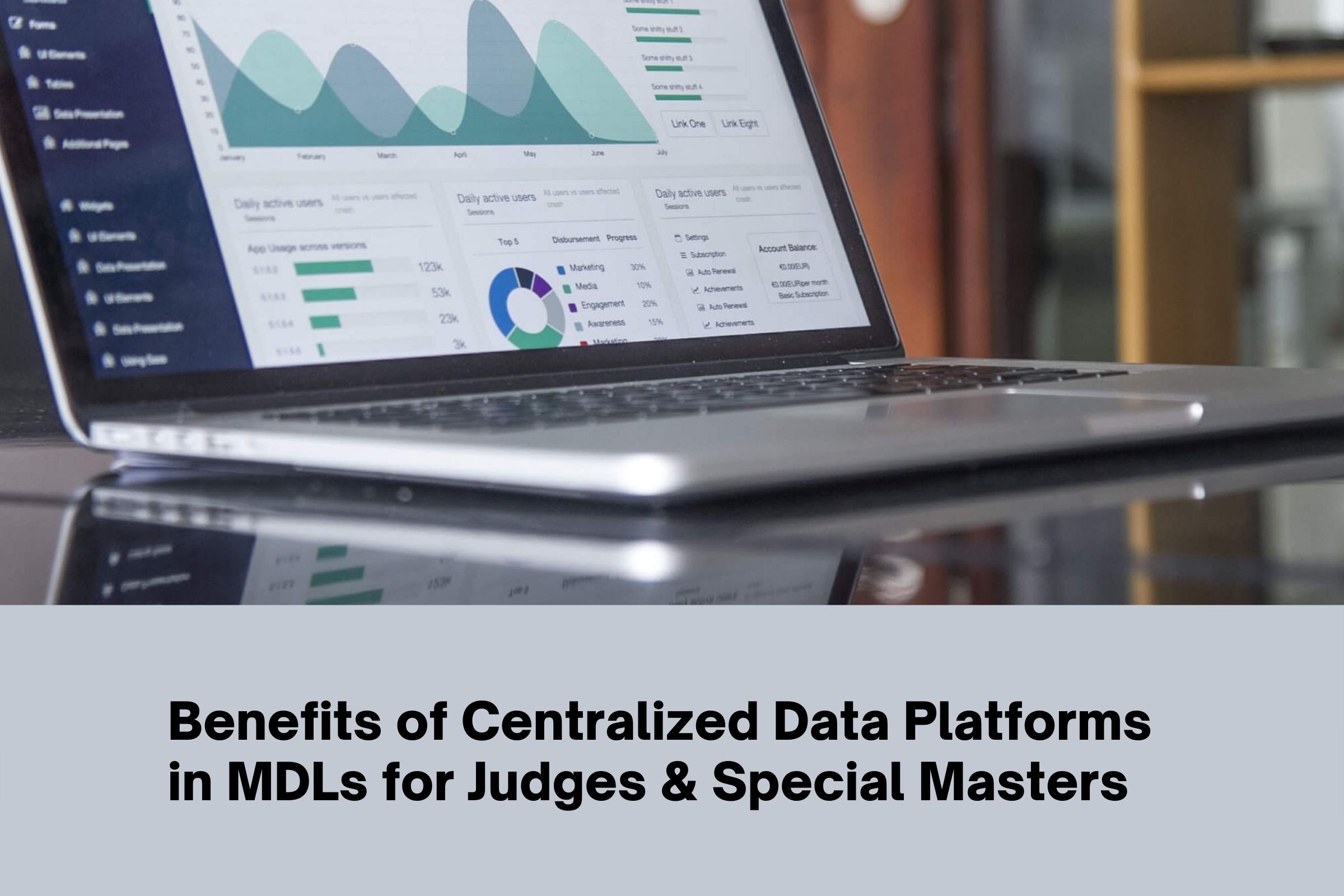
There are many benefits to utilizing centralized data exchange platforms in complex litigation. The centralization of early case data and supporting discovery documents makes handling large case inventories more seamless and efficient. Early access to claimant and population data and analytics assists with coordinating discovery efforts across parties to save time and costs.
When are technology tools and platforms decided in litigation?
Technology tools and platforms are typically selected by the leadership committee appointed during the outset of the multidistrict litigation (MDL) coordination. These procedures are announced via pre-trial orders produced by the court.
Judges and special master’s role in discovery
Judges control the primary calendar of the litigation to keep the parties on schedule. Judges may request custom reports from attorneys or service providers for a high-level overview of the litigation.
Judges may choose to appoint a special master to mitigate discovery disputes, address technical issues, discuss settlement negotiations, and streamline and manage other specific processes associated with the defined MDL process.
Initial census process adoption and the use of centralized data platforms
With parties having access to more data earlier in the MDL process, enhancements to phased discovery and trial pool selections may help parties develop an earlier framework by which resolution discussions may occur. Currently, 3 MDLs have adopted the use of an initial census process to serve as an early vetting tool as mentioned in our previous article, “Using Data Analytics in the Management of MDLs: 3 Takeaways and What’s in Store for The Future.”
How centralized data exchange platforms assist judges and special masters
Bellwether cases are selected by using criteria that are both meaningful and representative of the population as a whole. The criteria should correspond to foreseeable issues in the case, such as type or severity of injury, location of claimant, etc. In order to do this, it is critical to have an early understanding of what is representative of the population as a whole. This requires sufficient information on each claimant to allow for some form of measurement.
Judges are embracing the simplified process of online data entry. Judges and mediators benefit from being able to access certain fields of data and reports with real-time insights and analytics.
[See: 4 Best Practices When Implementing a Centralized Data Exchange Platform]
Centralized data exchange platforms that are designed to manage data in complex litigation provide an efficient and cost-effective solution to manage litigation. Users can gain multiple advantages, such as at-a-glance visibility into discovery filing status and reduced costs through efficient data sharing. Analytics and dashboards can provide real-time insight into case and claim trends, bellwether selections, and potential progress towards matter resolution. As technology continues to progress, these tools will become yet another standard component of the litigation toolkit for the successful resolution of complex matters for all parties involved.
How can LMI assist with discovery data exchange in litigation?
LMI’s custom technology platforms offer software solutions to meet specific matter and party needs. LMI clients seek our services for a customized experience complemented by our team’s experience. Our team is comprised of medical, legal, healthcare, business, finance, and information technology specialists.
Every project is unique, and staff is assigned according to each client’s specific needs. LMI can work within various budget and pricing scenarios to ensure that client needs are being met in the most efficient and cost-effective matter.
Contact us for a free demonstration of our full suite of solutions